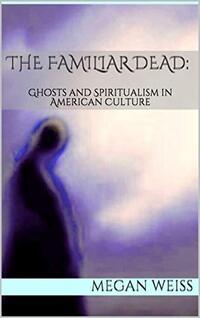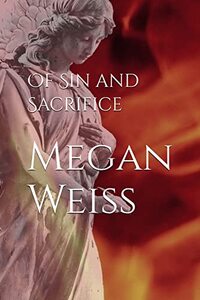Megan Weiss Interview Published on: 21, Oct 2020
 What developed your passion for reading and writing when you were in junior high?
What developed your passion for reading and writing when you were in junior high?
As I got older, I developed severe anxiety. In junior high, books became the one place where I didn’t have to worry about what I looked like, words I needed to say, or even about what other people potentially thought about me. I’m one of those people where when I really get into my reading zone, everything else gets tuned out. I don’t hear the television. I don’t really see what’s going on around me. Someone could be talking to me and I have no idea because I’m so drawn into the book. Books became my happy place – where I could be whoever I wanted and feel like I had a place to belong. It inspired me to want to write books so that I could contribute to the infinite number of literary worlds for kids – especially teenagers and young girls – to choose from. I always thought “if I can make just one person’s life a little brighter with a book that I wrote, then I’ve fulfilled my purpose.”
Do you remember any of the silly little stories you wrote as a kid in elementary school?I remember writing an account of me breaking my elbow as a 4-year-old, in second grade, and another one about a trip we took one day to the African Lion Safari in Canada. The first time I remember really getting excited about a story was in 4th grade. We were just told to write a story about whatever we wanted as a long writing exercise. Most of my classmates wrote 1-2 little blurbs, but I remember mine ended up being about 6 pages front and back, with dialogue and all that. I remember it was about a girl and her younger brother – I think they were stranded on an island or something. The girl’s name was June.
How has holding a Bachelor's Degrees in Creative Writing and English helped you in your writing career?I think it helped me explore different types of writing to find my niche. Most importantly, though, my Creative Writing classes taught me lessons about writing itself. My first day of class freshman year, our Beginner Nonfiction professor told us “Write what you know and write every day.” It didn’t matter what it is – it could be a memory, about an object. It could be a full-blown essay or story or a poem or riddle. All that mattered was that we exercised our writing brains regularly.
What do you enjoy the most about reading YA novels?So many people give YA literature a bad rap or think it’s shallow or juvenile, but I think just the opposite. YA protagonists are fierce. They face death. They face war. They face discrimination. In YA novels we see kids faced with some of life’s cruelest, toughest challenges, and yet somehow, they manage to maneuver their way through the story, and come out on the other side with their morals and sense of self stronger than ever. YA novels teach valuable lessons about friendship and how to treat other people, especially those you may not like or agree with. I think it’s important that kids read about characters that they cannot only identify with, but who they see overcoming challenges and accepting flaws about themselves. YA literature has only existed since the mid-20th century, but now it’s one of the biggest markets, and that only shows that books really do have an influence. More kids are reading and they are being inspired to be stronger from the books they read.
What inspired you to write a book about the sociocultural history of the paranormal in modern culture?I started getting interested in the paranormal when I was about 13. My friend watched the show called “Most Haunted” which was a really popular British paranormal investigation show about 10-12 years ago. Now, I actually cringe at some of their investigation techniques, but it got me interested in what happened after we die. Mostly, I loved how every place they went had its own history. I got into Ghost Hunters for a while, and then Ghost Adventures started airing on the Travel Channel when I was 14, and it kind of tumble-weeded from there. I’ve seen every single episode up to this day, and it was watching those as I went through high school and college that made me more curious about the occult and in local history. It showed me how there’s a lot we aren’t taught in school, and that important history occurs everywhere, every day. I’ve done a few ghost hunts now, and when it was time to pick my Master’s thesis topic, it was just a no-brainer. I live about 10 minutes from Hydesville, which is considered the birthplace of Modern American Spiritualism, so I liked that I was researching something that was local, that I had an intense passion about, and was a topic that has been much overlooked by most traditional historians. Occult history can reveal a lot of insight about the innerworkings of different groups and cultures.
How much did you research while writing "The Cobblestone Era" emerging around 1825 and dwindling out around 1860-61?I actually had to research this project really fast. There were two different capstone projects for my program in graduate school. One was a research-oriented project, and one was a research oriented projected PLUS a public history component. Usually you only take one, but there was a Registrar mix up and I ended up having to take both (the school paid for it at least though, since it was their mistake, which was nice!) I had about 2 weeks between the end of my Spiritualism project and the beginning of the next capstone course. I’d been toying with the Cobblestone project for about a year, and had done some preliminary research before, which helped. It was hard finding a wide variety of sources. Since it was such a localized trend, and lasted only a short time, there isn’t much literature written about it. I was able to find a few different books written by local authors that detailed a majority of the structures in the surrounding area, though. One of my best friends also works for a local historical society and was able to find me some primary source material in their archives, one being a report that I’d actually been trying to find for WEEKS. My favorite part, though, was driving around to see the different buildings. One of the books I relied on for research is called “Cobblestone Quest.” The book divided the region into over a dozen 1-2 hour long driving tours. It had addresses for the buildings, years they were built, names if they had specific ones, and blurbs about their history. I would have my dad play chauffeur, and on weekends we’d pick a tour and he’d drive us to the different locations. Then, I would take pictures. It was like a weird scavenger hunt!
Who inspired the character of Rayne Goodman in "The Spoken Word"?I think it’s hard for characters to not have certain characteristics inspired by the writer. For Rayne, she kind of evolved to become the person I’d want to be if I were living in a YA novel. I like to think that she’s the braver, more confident version of my 17-year-old self
How did you begin writing the Watchers series?When I was trying to think of different plot scenarios for a potential book, I decided to try and look through recent local history to see if I got inspired. I was fresh out of grad school and the pandemic had just started, and I needed to do something at night to stop myself from going stir crazy. It’s hard for me to write about places I don’t know, so I’ve never been good at creating my own fantasy worlds (though I’ve definitely tried!). That led me to decide to use my hometown as a base setting. In all the books I’ve read, I’ve actually never come across one that took place in this region, so I thought it would be a fun way to try and put us on the map. I also thought it would help me develop a plot if I could find a topic that had a bit of its own history to it. The inspiration for the Spoken Word cult actually came from a real group, which was heavily featured in the news for a while about 5 years ago after getting into some (well deserved) hot water. I took the cult idea and added the supernatural spin to it to make it my own.
What makes a good book cover for a YA novel?Most of the covers that I’ve really, really loved usually have some kind of captivating central image, whether it’s a person, object, animal, flower, etc. I tried to use that logic when creating mine. I think the best covers are simple, yet aesthetically beautiful in their own way.
What is one message that you try to impart through your books?In my fiction, I guess you could say my message is not to discount your own abilities or worth, and that we’re stronger than we think we are.
What's one of the best things about living in Rochester, New York?Cider donuts!
What are some useful tips for students starting their first semester at Southern New Hampshire University?I did my entire Master’s degree online, so for those doing the same, I’d say utilize your professors and start thinking about projects and research as soon as a course starts. I wish I would have connected more with some of my professors, because I had some that seemed really awesome and if I had attended in person, I think I would have worked with them very closely. They’re also super ready and willing to answer questions. And utilize your academic advisor. If you have a problem, they will help you!
Which is your favorite place to go to hang out with your dog?See, the problem is that my dog has a lot of opinions, and likes to voice them frequently and very loudly. She’s also not that fond of other dogs, or people, really. She’s super small, so she gets scared easy. She also gets jealous, so if other people or dogs are taking our attention, she will let us know that she is not pleased. We mostly just hang out at home, but we have a big backyard and live next to two soccer fields, so we’ll take her frolicking out there. Her favorite activity is squirrel hunting (thank God she’s never actually caught one).
How many plot ideas are just waiting to be written? Can you tell us about one?I have one that I’ve started writing and have about 10 chapters written, but have gotten kind of stuck. I’m actually trying to create a fantasy world, which is proving difficult, haha - it’s based on an old Hans Christian Andersen fairy tale called “The Tinderbox.”
How has your experience of being associated with AllAuthor been?It’s been great! The weekly mock-ups and scheduled tweets are super helpful and I’ve been able to grow my network a bit and get some more followers, which can be super hard for new authors.
Share Megan Weiss's interview
Megan Weiss has had a passion for reading and writing since she was in junior high. She spent her college career at SUNY Oswego as a Creative Writing and English major. She started getting interested in the paranormal when she was about 13. Her stories are enjoyable, captivating and highly recommended.
 The Familiar Dead: Ghosts and Spiritualism in American Culture
Genre: History, General Nonfiction, Religion & Spirituality
The Familiar Dead: Ghosts and Spiritualism in American Culture
Genre: History, General Nonfiction, Religion & Spirituality






